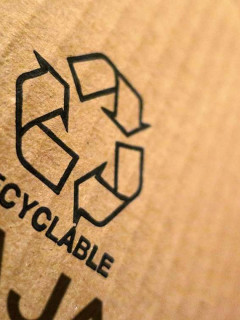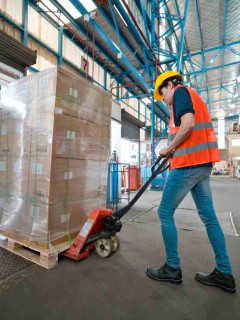It is important to remember that a Musculoskeletal Disorder (or MSD) costs the company an average of €21,512 (between repeated work stoppages, absenteeism and occupational health costs). This figure alone makes it possible to understand the importance of preventing occupational illnesses in logistics, one of the most affected sectorshere are the key tips in the form of a methodology for identifying and preventing the risks of Musculoskeletal Disorders in your warehouse, by adopting a better work organisation.
We put our questions to Olivier Raquin, Director/Ergonomist at Ergonalliance

I. Identifying Musculoskeletal Disorders
what are the main origins of MSDs?
The INRS reminds us that Musculoskeletal Disorders come from 3 major sources
- Biomechanical factors: repetitive movements, static work, excessive muscular effort and strain, extreme joint positions, etc,
- Psychosocial factors: time pressure, lack of control over work, lack of social support, etc,
- Organisational factors: short deadlines, monotonous work or insufficient recovery time, etc
the advice below focuses solely on the physical/biomechanical aspect of Musculoskeletal Disorders, giving you the keys to assessing occupational risks and preventing them.
What are the major symptoms of Musculoskeletal Disorders
? Occupational diseases recognised under the acronym “MSD” present the following symptoms, on different parts of the body
- Carpal tunnel syndrome (risks related to the wrist, tingling in the hands, loss of strength, cold hands…)
- Elbow tendonitis (e.g. tennis elbow) pain in the elbow and its joints, and when gripping.
- Rotator cuff syndrome (pathology in the shoulder): there are several stages, and the last stages are not curable
- Back pain: lumbago, lumbago, herniated disc, etc.
these 4 types of occupational illnesses, affecting the lower limbs, the upper limbs and the lumbar region, account for 75% of occupational illnesses!
What are the first questions to ask yourself?
It all comes down to being vigilant at the onset of these pains, and therefore from the very first moments of the pathologies: this is a crucial element for the health and safety at work of your employees. This is why local supervisors must listen immediately, for example if the operators tell them about serious shoulder pains. It is therefore a question of management (in terms of organisation and the psychology of the supervisors)
iI Preventing Musculoskeletal Disorders
une base méthodologique est nécessaire pour prévenir les Troubles Musculo-Squelettiques biomécaniques. Nous vous donnons quelques conseils-clés qui servent de base à une analyse et à la rédaction d’un plan d’action.
Nous l’avons vu : 3 familles de facteurs peuvent potentiellement être à l’origine des TMS (facteurs biomécaniques, organisationnels et psychosociaux).
Par conséquent, pour mettre en place une démarche de prévention des TMS, dans un premier temps, il faut chercher à supprimer ou limiter les facteurs biomécaniques, comme les gestes et postures inconfortables, les vibrations provoquant un inconfort, les problèmes d’ergonomie du poste de travail ou lors de la manutention manuelle, ou la répétitivité de certaines tâches. Par exemple, la mise en place d’une banderoleuse permet de supprimer les postures contraignantes de la colonne vertébrale liées au filmage manuel d’une palette.
Dans un second temps, il est nécessaire de chercher à identifier les facteurs organ
-
a systemic vision of the work situation,
-
to take this approach over time,
-
to make the entire hierarchy aware of the approach.
this advice is not a substitute for training approved by the health insurance system, but it does give you a vision of the objective.
III. Applying for financial aid to improve working
conditions Below is a reminder of the aid that is detailed elsewhere in our guide to simplified financial aid for VSEs/SMEs
thanks to these few methodological guidelines, you are now ready to prevent your warehouse from Musculoskeletal risks, and to improve the working environment of your operators, for better health at work!
About Ergonalliance
For almost 20 years, Ergonalliance has been supporting companies in their MSD prevention projects. Ergonalliance is authorised by the CRAMIF and the INRS to carry out MSD diagnostics, to run training courses (PRAP, TMS Pros, etc.), and to provide support and consultancy services. Our objective: to combine performance and health.















